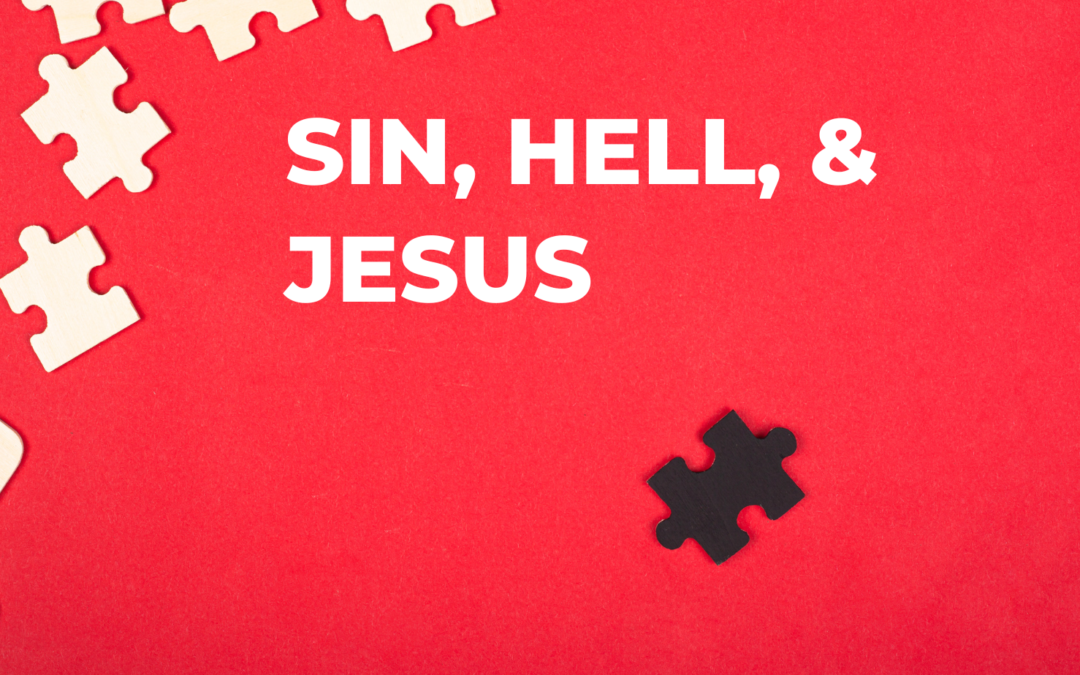We might ask, “If God is all-loving, why is there a hell?” Or, similarly, “Why do people die?” The Christian response has always been: because we choose to sin. Our purpose here is to delve into this mystery. In particular, we want to discuss what sin is, why its consequences are what they are, and what God did about it on the Cross.
Existence is ordered toward communion
To understand sin, we first must understand a little about God. God is. God is existence and he holds all things in existence insofar as each thing participates in God’s existence. I intentionally used the word “existence” as many times as I could. Why? Because existence itself is an echo of God. Everything that exists has the very stamp of God in its existence. This means that the core of existence, and in particular, the core of who and what we are, is in the image of God. Everything is going to reflect God, especially our inner lives (intellect, will, love).
God is Trinity. God is not an isolated being but rather a communion of persons. This is going to have huge consequences for all that exists because this means that everything is made for communion, not isolation. This is especially meaningful for us as persons who can make choices. At the center of who we are, we are made in the image of a Communion of Persons. This means that we only find fulfillment in communion and we find death in sin.
To sin is to close in on ourselves to the exclusion of others, especially God. It is different than what people do when they periodically turn in on themselves, so to speak, when they recollect themselves or reflect on who they are. Recollecting or reflecting on oneself does not cut off communion with other people but rather allows for deeper communion because only the recollected person can truly give himself/herself. And it is different from when people seek temporary or permanent physical isolation from others (e.g. when monks become hermits). Physical isolation is not the same as interior isolation. Our experience confirms this. We can be completely surrounded by other people physically and yet feel terribly isolated. A monk can be physically isolated from everyone else and yet be intimately connected and in communion with others interiorly. What we mean by interior isolation becomes more clear when we reflect on love.
Love is coming out of ourselves
When we love someone, we come out of ourselves, so to speak. We are no longer only focused on our own concerns and interests but are also focused on the needs of others. When we experience sympathy for another person, we come so much out of ourselves that we seem to enter into the experience of the other person. When we feel sympathy for a homeless child, for example, we view the world from his eyes, we feel his needs and desires almost as if they were our own. Love, when it is authentic, involves exactly this coming out of ourselves and into others. The stronger the love, the greater we are able to enter into the other. And ironically, the more we are able to come out of ourselves, the more joy we personally experience. In short, love is imaging the Trinity. In the Trinity, each divine Person so enters the others that they are one.
Sin is retreating into ourselves
Sin is the opposite of love. Sin, even when others are involved, always involves retreating into oneself and remaining concerned with only oneself. We can reflect on lust, for example. To look at another person with lust harms communion with the person because it involves taking the person, reducing the person to an object, and using that person for physical gratification. Love for a person, on the other hand, involves giving oneself to another, treating the person as a person, and willing that person’s good for his/her own sake. Love involves coming out of ourselves and entering into the cares and concerns of another; lust involves taking another person and using him or her as an object for oneself.
Sin always involves choice. Sin always involves a choice to commit an act (e.g. murder), or to not commit an act (e.g. neglecting to feed the hungry). In no way is retreating-into-ourselves to be equated with a habitual attitude or psychological outlook. In other words, someone is not in the isolation of sin simply because they feel isolated. Someone who is suffering from depression may feel isolated but is in fact very loving. Someone might feel loving but is in fact in the isolation of sin. Sin always involves a personal choice and it is by our choices that we define our personal stance toward others: either for communion or for isolation. It is not defined by our feelings or mental outlook.
Mortal vs. venial sin
It is possible to isolate oneself with one choice. If a sin is serious enough, then it entails a complete severing of communion with others, and most importantly, with God. You could still be physically close or superficially intimate, but you have so drastically retreated into yourself that in the core of you, love cannot penetrate and you are no longer capable of coming out (unless, of course, the sin is repented of and God’s mercy allows us to enter into communion with him again – but we are getting ahead of ourselves). This is what we call “mortal sin”. It is such a grievous choice for oneself to the exclusion of others and of God that you are left, in the depth of your soul, with only yourself. Charity, or the capacity for deep communion with God and others is extinguished in your soul.
Not all evil choices or actions are serious enough to completely sever our communion with God and others or extinguish charity from our souls. Such choices still involve a retreating into our selves but not to the exclusion of God and others. This is what is called “venial sin”.
For a sin to be mortal, all the following three conditions must be met: 1) the choice made or action done must be grave matter (meaning, it is something very serious), 2) you must have full knowledge of what you are doing and that it is wrong, and 3) you have to fully will what you are doing. If any one of these conditions is not met, it is still sin, but it is not mortal sin. All the conditions must be met because in order to make such a personal choice against communion, your whole self must be involved in the choice. It cannot be the result of unconscious behavior or extreme external pressures. For example, if Bill is suffering from severe mental psychosis and kills another person, Bill’s whole self was not really involved in that decision because he did not really know what he was doing and he probably did not have full control of his actions.
Consequences of Sin
Once we understand what sin is, it is easier to see that the consequences of sin are not arbitrarily decided by God. Rather, the consequences follow naturally and necessarily from what sin is. If sin is the turning in on oneself to the exclusion of God and of love, this naturally brings with it suffering and death. Death is nothing but the fulfillment of sin because death is nothing but the fulfillment of our choices for isolation. Death is God letting us have what we have chosen: ourselves. Another way to think about it is: God is Love, God is Life; the more we distance ourselves from God, the more we distance ourselves from what he is and we are left with ourselves and with death.
The Good News
This is precisely what makes the Cross the greatest news ever. God himself took on the natural consequences of our sin and brought life back into our death and love and communion into our hell. “Christ has conquered death by death.” God entered into death, but unlike our love, his Love could not be extinguished. God entered into our hell but he did not enter isolation as we would in death; he descended into death in full communion with the Father and the Holy Spirit. In dying, Christ transformed death from being a hell of isolation to being heaven, where we enter into deep and full communion with God and with others. His divine life, the love stronger than death, is poured into our hearts in baptism and it is this divine life at work in us that heals us and allows us to enter into true communion with others in this life and the next. Because death cannot separate us from the love of Christ (not just a pleasant platitude), Christ remains in us and we remain in Christ when we die. This means we do not enter into isolation but into heaven. Does this mean that sin is no longer sin? Of course not! Sin still has the same consequences if we do not let Christ into our self-made isolation. Hell is still a possibility for those who reject the offer of life in Christ.
By Mark Heffley

